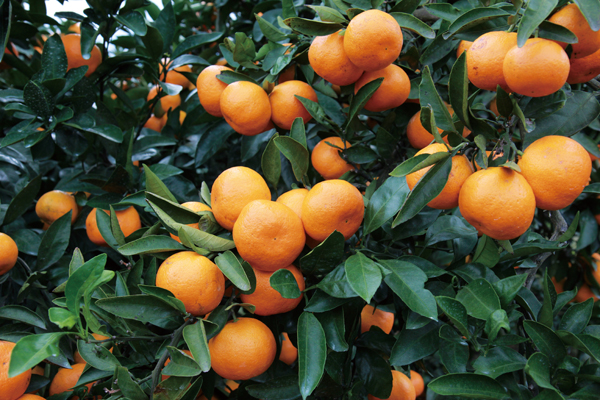http://www.jejuweekly.com/news/articleView.html?idxno=2451
Despite costs, seed development key to agricultural competitiveness
Researchers at the Citrus Breeding Center and Korea Seed & Variety Service address farmers' concerns
Friday, March 09, 2012, 14:43:44
Angela Kim angelakim@jejuweekly.com
 Photo by Cho Gyewon
This is the second of a two-part report on the royalties of certain plant varieties in Jeju. Ed.
Photo by Cho Gyewon
This is the second of a two-part report on the royalties of certain plant varieties in Jeju. Ed.
As of Jan. 7, 2012, all plant genera and species in Korea fall under plant variety protection, as per the provisions of the International Union for the Protection of New Varieties of Plants (UPOV) conventions.
About 60 percent of Jeju farmers cultivate the mandarin (Citrus unshiu Marcow), or citrus hybrids like Hallabong. Approximately 98 percent of citrus grown on Jeju was developed in Japan.
According to the Rural Development Administration (RDA), this could potentially cost Jeju mandarin farmers up to 1 billion won (US$900,000) in royalties within the next 10 years.
Many Jeju farmers worry about the royalties they will be facing. However, The Jeju Weekly interviewed two experts who believe that the costs will not cripple the industry.
Yang Mi Hee, a senior researcher and examiner at the Korea Seed & Variety Service (KSVS), emphasized that the goal of plant variety protection is to increase agricultural productivity to better farmers lives.
For farmers, the price of seed may increase in the short term, but in the long term, intense competition will eventually reduce costs.
The farmers concerns over royalties have radically simmered down compared to that of 2002, said Park Young Chul, a researcher at the Citrus Breeding Center within the Jeju Special Self-Governing Province Agricultural Research and Extension Services.
Currently, a mandarin tree costs about 7,000 won. Park estimates royalties to be around 10 percent of the tree cost. He believes that this is affordable.
Both experts strongly emphasized the importance of the plant breeding industry. Park explained it was necessary for the Korean agricultural industry to move forward, while Yang said, Seed breeding is a fundamental element in agriculture.
In developed countries, about 30 percent of breeders are private, yet in Korea about 90 percent of breeding occurs in government facilities. Upon joining UPOV in 2002, the RDA began to sponsor plant variety breeding and development. To foster the plant breeding industry, the Korean government had established the Seed Center under KSVS to provide private breeders with information, findings, and techniques.
Starting this year, the Korean government will be investing 491 billion won ($440 million) over the next 10 years into the Golden Seed Project, which also includes the mandarin. The Golden Seed Project is a government-centered seed breeding program to develop plant varieties, especially those farmers heavily rely on overseas, to increase exports. Mandarins are one of the 20 strategic items.
The provincial government is also striving to achieve two main goals: breeding, and improving the quality of currently planted varieties.
Plant breeding processes are rather complicated. On average, a mandarin tree takes about seven to 10 years from seeding to blooming. Five more years are required after flowers bloom to examine the quality of the fruit.
Thats why Jeju, or Korea, should invest more on plant breeding now than later, said Park.
Early last year, the Citrus Breeding Center was established by the provincial government under Jeju Special Self-Governing Province Agricultural Research & Extension Services (ARES).
The Citrus Breeding Center uses the cuttage technique, which utilizes cut branches as seedlings to save time. Every year, researchers go around Jeju farms looking for mandarin trees with mutant branches.
In 2006, Jeju ARES successfully developed sangdo josaeng after nine years. As of Feb. 2012, 12,000 seedlings of the breed were distributed to Jeju farmers free of charge.
The Citrus Breeding Center plans to register three more Citrus unshiu Marcow with KSVS by 2014.
I wouldnt worry about royalties, Park said, referring to the concerns of mandarin farmers. Out of the 15 species of mandarin on Jeju, only six are left unregistered and are still in the grace period. However, those six are planted in less than 100 hectares.
We expect the impact to be minimal, he said.
Yang also had advice for farmers: When one is planning to renew species grown in a farm, he or she should double-check the breeders rights and registration.







